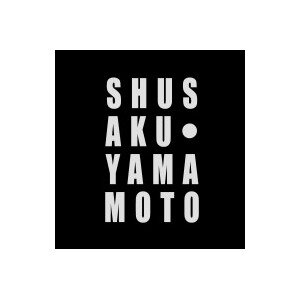Best Trademark Lawyers in Osaka
Share your needs with us, get contacted by law firms.
Free. Takes 2 min.
List of the best lawyers in Osaka, Japan
About Trademark Law in Osaka, Japan
Trademark law in Osaka falls under the Japanese national legal framework, as trademarks are protected at a national level in Japan. The Japan Patent Office (JPO) is tasked with the registration and administration of trademarks in the country. Trademarks are key assets for businesses and individuals as they provide legal protection for brands, logos, and other distinctive signs that differentiate goods and services in the market. By registering a trademark, the owner obtains exclusive rights, preventing others from using similar marks that could cause confusion among consumers. It is crucial for anyone conducting business in Osaka to understand the importance of trademark protection to maintain the uniqueness and integrity of their brand.
Why You May Need a Lawyer
There are various situations where legal help in trademark matters is necessary. For instance, conducting a proper search to ensure that a new trademark does not infringe on existing ones is a specialized task. Legal advice is also beneficial when drafting and submitting an application for trademark registration to avoid errors that could lead to rejection. Additionally, if you face a challenge such as someone contesting your trademark application or if you need to enforce your trademark rights against infringement, a lawyer's expertise becomes essential. Lawyers can also guide businesses through international trademark registration protocols, such as the Madrid system, which can be complex without proper legal guidance.
Local Laws Overview
The key aspects of local laws relevant to trademark in Osaka, Japan, include the Trademark Act, which sets the framework for trademark protection and registration. Some significant points include that a mark must be distinctive, not conflict with prior rights, and not be barred by public order or morals. Japan is also a member of multiple international treaties, including the Paris Convention and the Madrid Protocol, facilitating the registration of trademarks in multiple jurisdictions. Additionally, trademark rights are typically enforced through civil court proceedings in Japan. The Unfair Competition Prevention Act also plays an integral role in protecting unregistered trademarks and other business identifiers against imitation.
Frequently Asked Questions
What is the process for registering a trademark in Osaka?
To register a trademark in Osaka, one must submit an application to the Japan Patent Office, including information on the applicant, a reproduction of the trademark, and a list of goods/services it will cover. After examination for conformity to trademark standards, if approved, the mark will be registered.
How long does trademark protection last in Japan?
Trademark protection in Japan lasts for ten years from the date of registration, and it can be renewed for subsequent ten-year periods indefinitely, subject to the payment of renewal fees.
Can foreign nationals register a trademark in Osaka?
Yes, foreign nationals can register trademarks in Japan. They typically need to appoint a local representative or agent to interact with the Japan Patent Office.
What are the possible grounds for refusing a trademark application?
A trademark application may be refused if the mark lacks distinctiveness, is identical or similar to a prior registered trademark, or violates public order or morals, among other reasons.
Is it mandatory to use a trademark after registration?
While it's not mandatory to use a trademark immediately after registration, failure to use it for three consecutive years or more can lead to cancellation due to non-use.
What should I do if I discover someone is using my registered trademark?
If you discover infringement, consult with a trademark lawyer to assess your options, which may include sending a cease-and-desist letter or taking legal action.
Can I sell or license my registered trademark?
Yes, you can sell (assign) or license your trademark to others, but such agreements should be recorded at the Japan Patent Office for validity against third parties.
Are there any specific regulations for trademarks in the service industry?
Service marks are subject to the same regulations as trademarks for goods. They must be distinct and not infringe on existing marks.
How does one enforce a trademark right in Japan?
Trademark rights are typically enforced through civil litigation. The trademark owner may seek injunctions, damages, and other remedies from the court.
Is it compulsory to have a trademark registered in Japan to take legal action for infringement?
While registration provides the strongest form of legal protection, unregistered trademarks may be protected under the Unfair Competition Prevention Act if they are well-known and recognized by consumers.
Additional Resources
For those seeking trademark legal advice in Osaka, the following resources can be helpful:
- Japan Patent Office (JPO) - for information regarding trademark applications and procedures.
- Osaka Bar Association - for a directory of lawyers specializing in intellectual property law.
- Intellectual Property High Court - for cases involving intellectual property disputes at a higher level.
Next Steps
If you need legal assistance with trademark matters in Osaka, consider taking the following steps:
- Gather all relevant information about your trademark, including its use, registration details, and any potential conflicts.
- Consult with a local intellectual property lawyer or a trademark agent with experience in trademark law.
- Work with your legal representative to conduct a comprehensive search, prepare your trademark application, or deal with any infringement issues.
- Ensure that you stay informed about any changes to Japanese trademark laws or international treaties that may affect your rights.
Lawzana helps you find the best lawyers and law firms in Osaka through a curated and pre-screened list of qualified legal professionals. Our platform offers rankings and detailed profiles of attorneys and law firms, allowing you to compare based on practice areas, including Trademark, experience, and client feedback.
Each profile includes a description of the firm's areas of practice, client reviews, team members and partners, year of establishment, spoken languages, office locations, contact information, social media presence, and any published articles or resources. Most firms on our platform speak English and are experienced in both local and international legal matters.
Get a quote from top-rated law firms in Osaka, Japan — quickly, securely, and without unnecessary hassle.
Disclaimer:
The information provided on this page is for general informational purposes only and does not constitute legal advice. While we strive to ensure the accuracy and relevance of the content, legal information may change over time, and interpretations of the law can vary. You should always consult with a qualified legal professional for advice specific to your situation.
We disclaim all liability for actions taken or not taken based on the content of this page. If you believe any information is incorrect or outdated, please contact us, and we will review and update it where appropriate.










